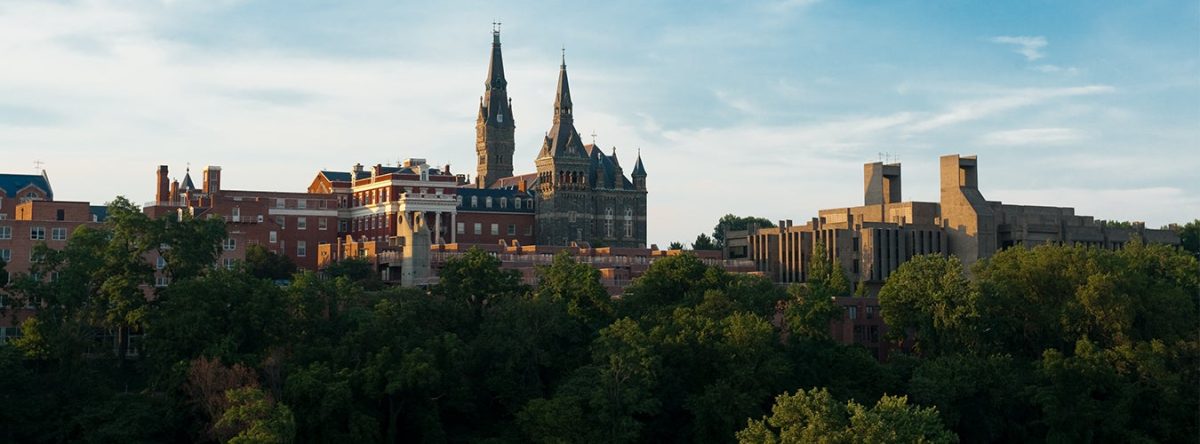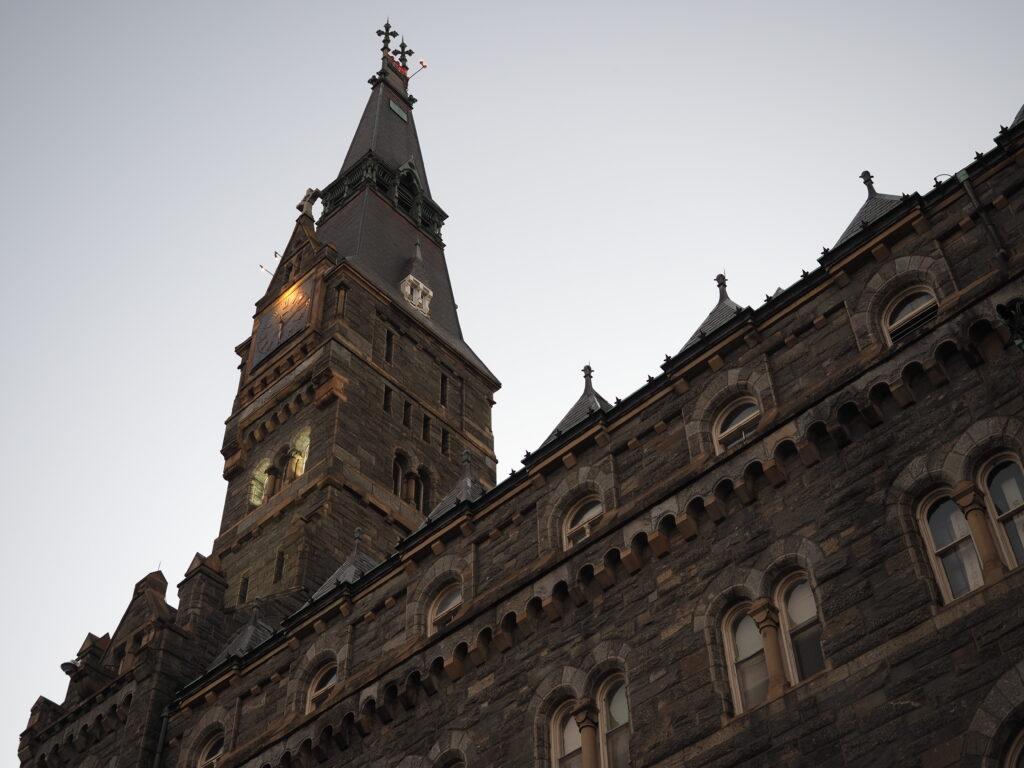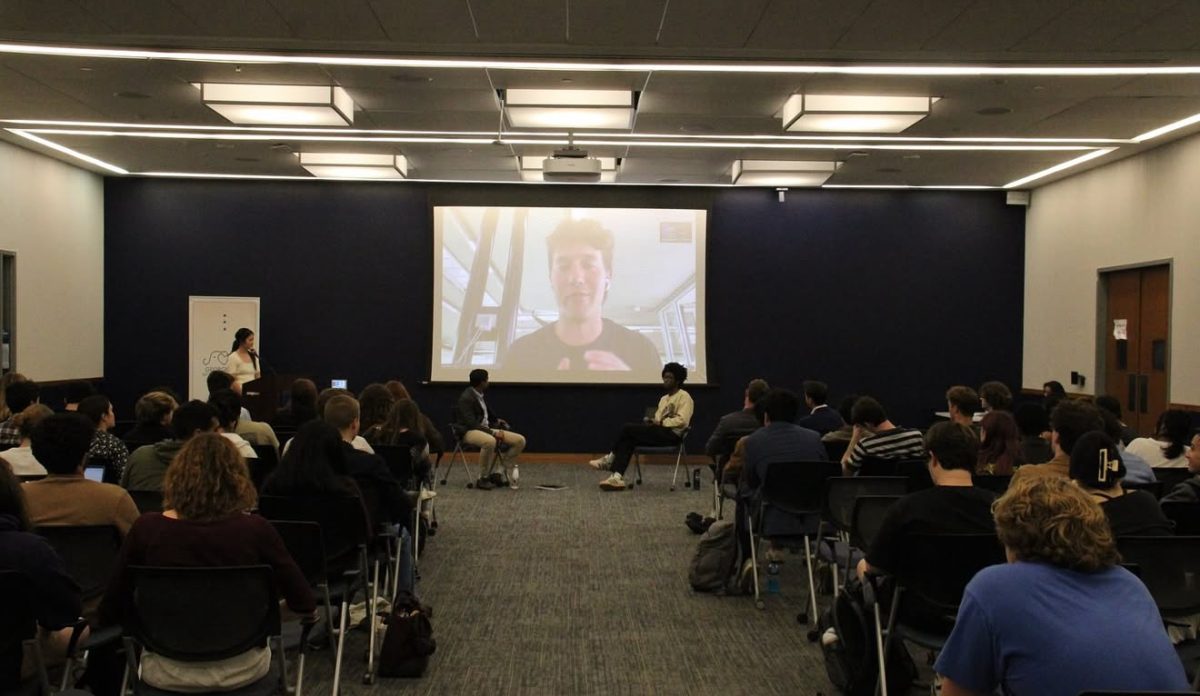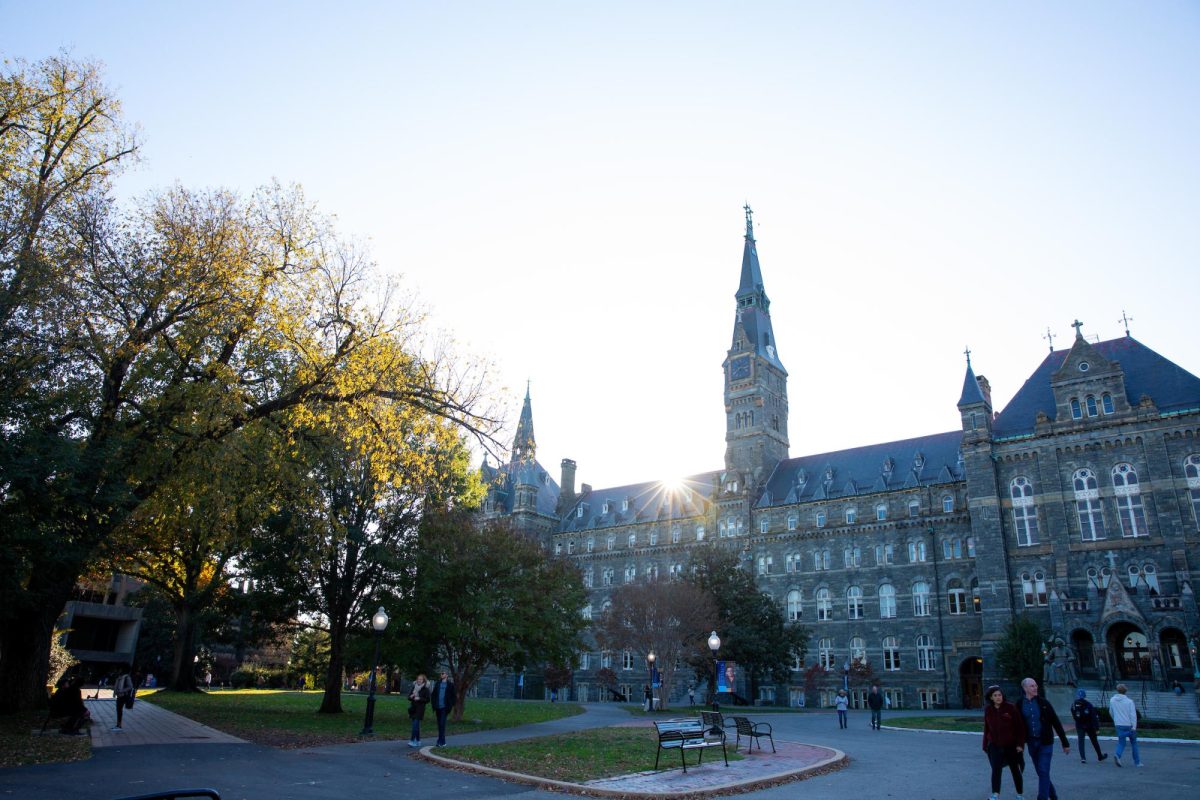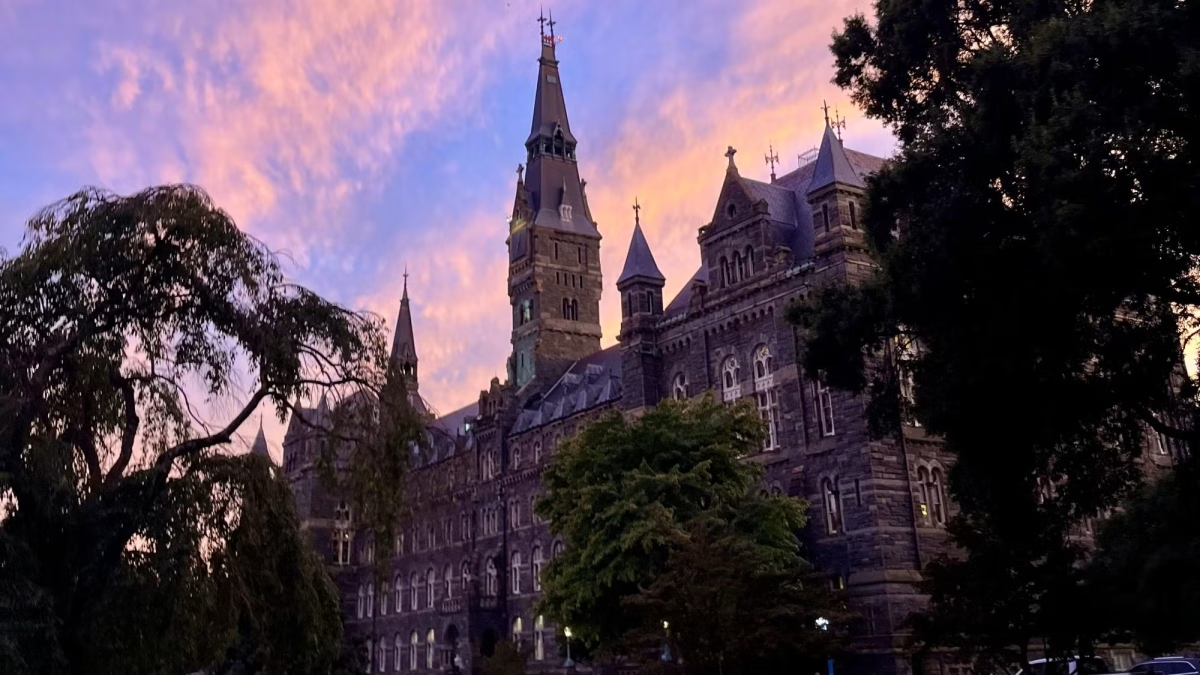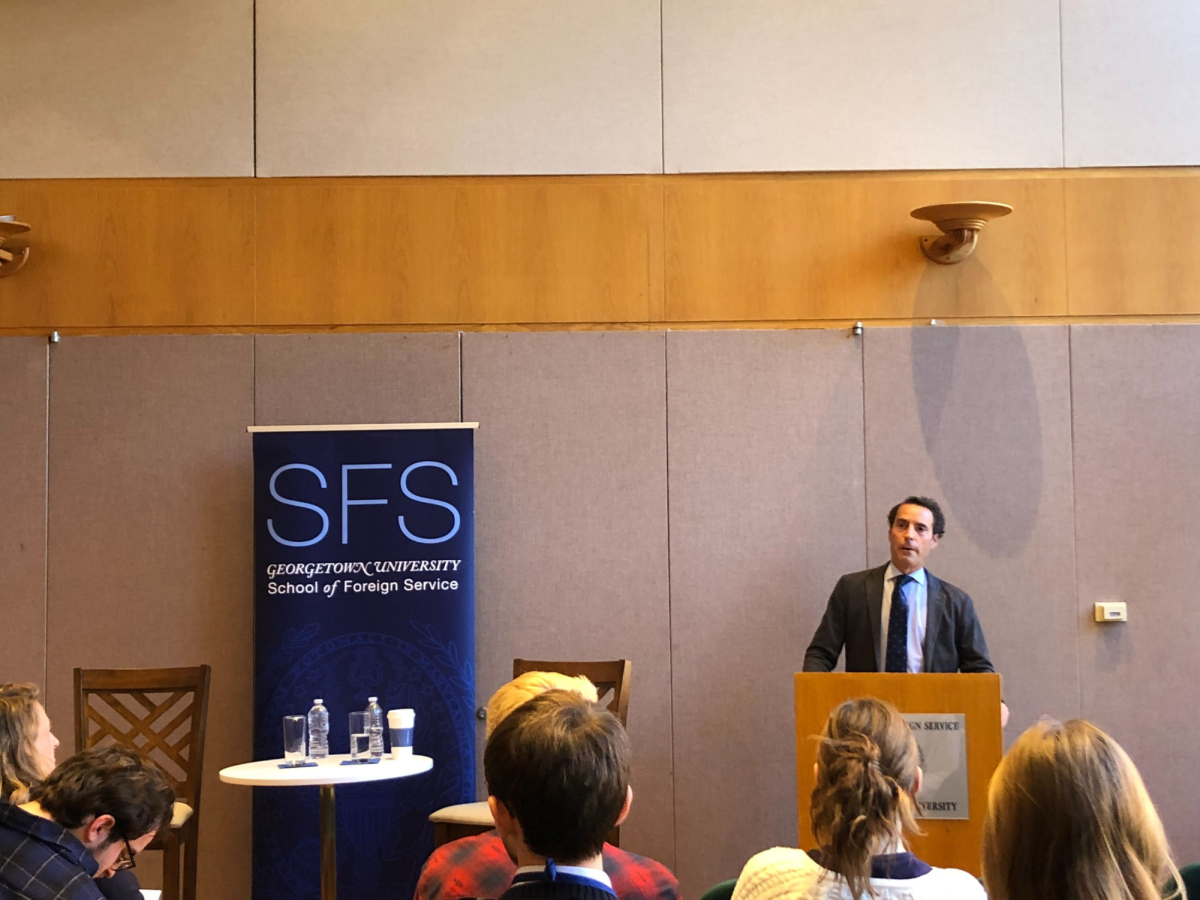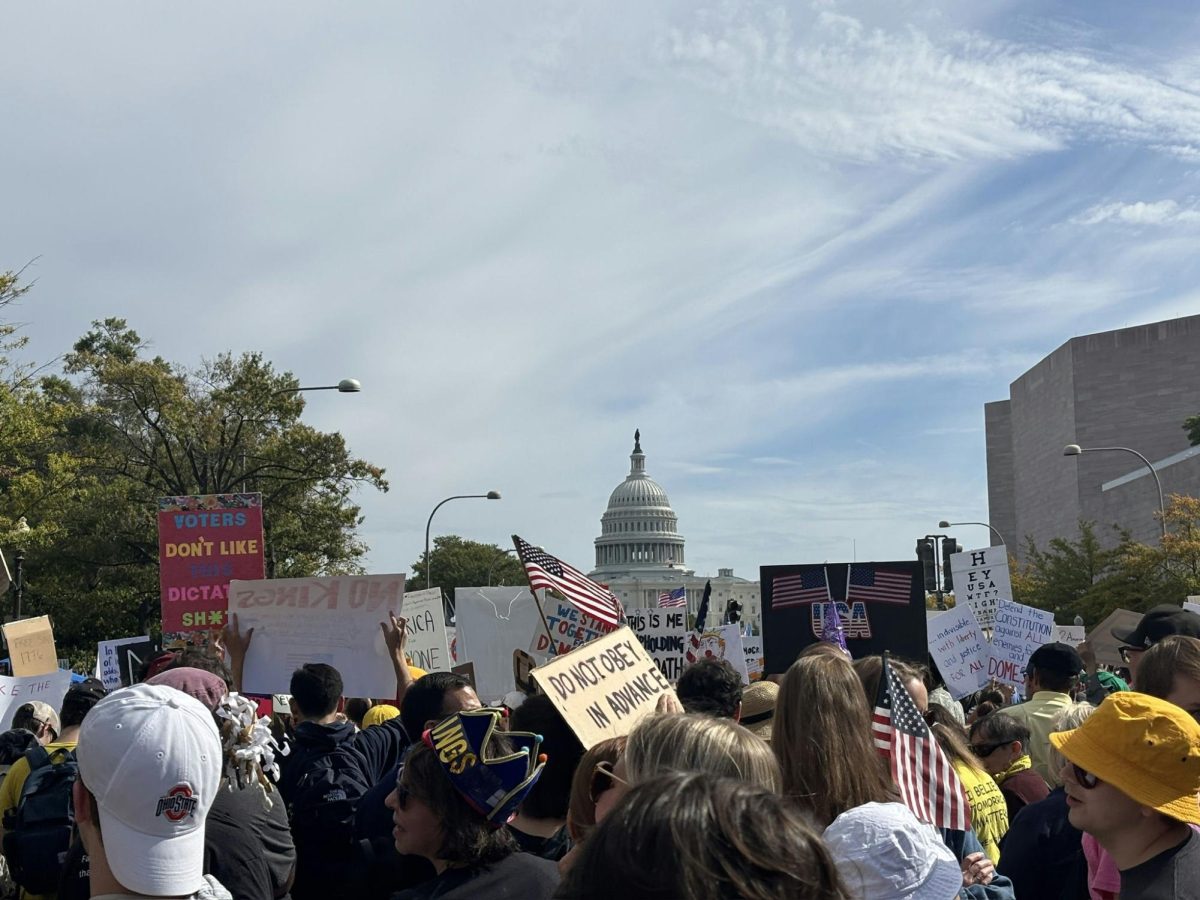The Georgetown University Student Association (GUSA) Senate, Georgetown’s student government, passed five bills at its Oct. 19 meeting, including legislation to clarify election conduct bylaws, reduce senator attendance requirements and improve the course registration experience.
The approved bills define campaign conduct during the election period, increase transparency around scheduled fire alarms and improve mechanisms for students to report bathroom supply shortages. The senate also passed bills to amend the bylaws of the Policy and Advocacy Committee (PAC) — the GUSA committee overseeing proposed policy changes before they are considered by the full body — to lessen attendance requirements for senators and designate the committee proceedings as off-the-record for media organizations.
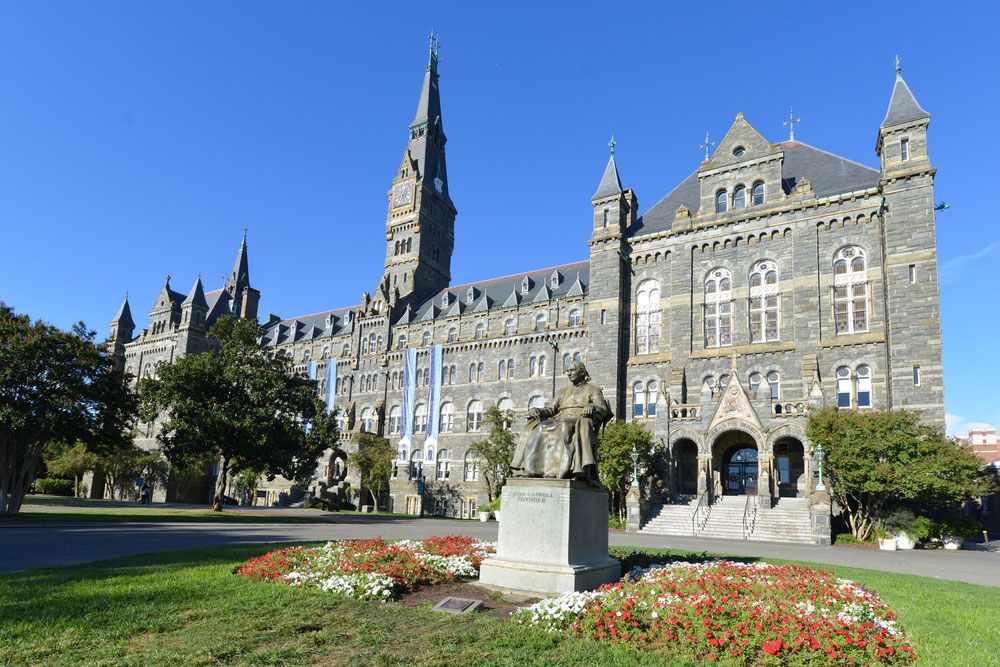
Speaker of the Senate Saahil Rao (SFS ʼ27), who introduced the election bylaw bill alongside GUSA President Ethan Henshaw (CAS ʼ26), said the bill prohibits door knocking during elections and bars members of the Election Commission, the organization that oversees GUSA elections, from resigning close to an election.
“It also bans door knocking ’cause door knocking is bad,” Rao said at the meeting. “And it adds a point B, which says that no election commissioner is allowed to resign their seat within 45 days of an election. Obviously, you can’t do anything about it, but it communicates the expectation, and I think that is important.”
Senator Cameran Lane (CAS ʼ28), who opposed the initial version of the bill, said candidates typically refrain from door knocking, but the option should remain open to them.
“First of all, I don’t think there’s a reason to mention it in the bylaw, because I think the likelihood of a student doing that is pretty low, but I think if there’s a candidate that decides to do that, they should have every right to,” Lane said at the meeting. “I think it shows commitment.”
Henshaw said banning door knocking would limit the competitiveness of campaigns.
“I think stopping the arms race of GUSA elections is good,” Henshaw said at the meeting. “I think people do all these absurd things to run for GUSA. That is just not healthy. Yes, people might start doing this, but I think we should just stop it before it becomes a thing.”
The senate voted unanimously to amend the proposal, instead passing a bill which allows GUSA senate candidates to door knock between the hours of 6 p.m. and 8 p.m. on weekdays.
The senate also unanimously confirmed Wyatt Adamovich (CAS ʼ28) to serve as vice chair of the election commission.
The senate unanimously passed a bill calling for the establishment of a course guide that includes estimates of courses’ workload, comments from previous students and past syllabi.
Senator Jacob Intrator (CAS ʼ27) said the bill would clarify the process for students to view information about a course before registration.
“The goal of this is to emulate similar schools, which have had much more clear processes for people to look at what a class is, how much they like it and how much other people liked it,” Intrator said at the meeting. “More than just on a scale of one to five, how busy was it on a scale of one to five, how was the professor on a scale of one to five and all this other stuff that we have right now — that’s what the bill does.”
The senate unanimously passed a bill that advocates for more transparency around scheduled fire alarms and fire alarm outages, specifically in Nevils.
The GUSA Senate unanimously passed a bill amending the bylaws, which eases PAC attendance requirements for senators involved in other GUSA-related meetings and designates PAC meetings as off-the-record for media organizations. The previous PAC bylaws state that any senators who are not members of the Financial and Appropriations Committee, the committee that distributes funds for student organizations, or the Ethics and Oversight Committee, the committee that ensures GUSA operates ethically, are members of PAC.
Senator Sienna Lipton (CAS ʼ27) said senators regularly attending other meetings should be exempt from attending PAC, but that each senate committee must send a senator to PAC.
“If you’re attending a meeting twice a month that is not the senate meeting, you should not be forced to go to PAC,” Lipton said at the meeting. “Additionally, it would require that one senator from each of these committees is attending PAC.”
Senator Meriam Ahmad (SFS ʼ26) said the meetings should remain open to all students.
“What I think is important is that students who want to submit legislation or freshmen senators who want to submit something are able to come to PAC and feel like they are included in the legislative process,” Ahmad said at the meeting.
Lipton said there is concern with the media covering PAC because senators discuss bills that may never be presented to the senate.
“I think the concern is that when we are in PAC, we are discussing bills that may or may not be presented,” Lipton said. “Senators should be able to feel they can say what they want to say about the bills without the media.”



